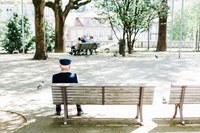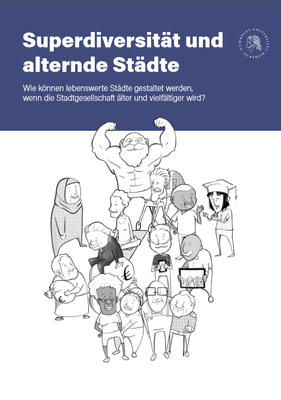Superdiversity and ageing cities? The convergence of increasing multiethnicity and an ageing population

Therefore, the aim of the DFG-project “super-diversity in an ageing city?” is to show the spatial distribution and development of the elderly, super-diverse population in Berlin as a case study. In a first step statistical data about the number and residential location of people above was acquired. Secondly, a survey was undertaken to assess individual-level data about diverse backgrounds and reasons for possible movements.
To group individuals into super-diversity groups with similar decision-making behaviour, data-mining approaches were applied. These groups are used as input for Agent-Based Modelling (ABM) to replicate realistic behaviour and to show the spatial development of super-diversity in cities.
Results will show the spatial distribution of the elderly population in 10 years. With that, it should be possible to establish vulnerable groups and develop focused approaches to support this part of the population.
The project is conducted in collaboration with the department of cultural and social geography (Prof. Dr. Ilse Helbrecht) and the department of landscape ecology (Prof. Dr. Dagmar Haase).
For further information on the project please contact:
Prof. Dr. Ilse Helbrecht: ilse.helbrecht@geo.hu-berlin.de
Prof. Dr. Tobia Lakes: tobia.lakes@geo.hu-berlin.de
Friederike Enssle: friederike.enssle@hu-berlin.de
Hannah Haacke: hannah.haacke@geo.hu-berlin.de


